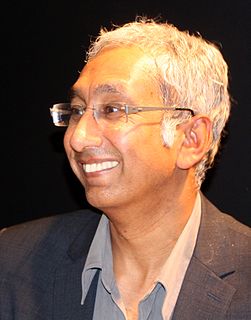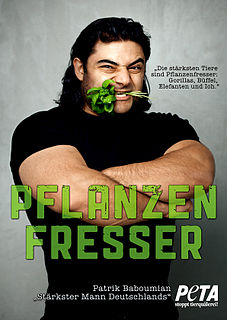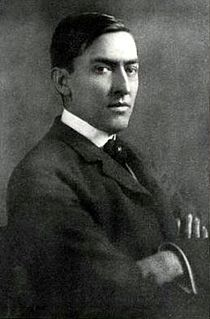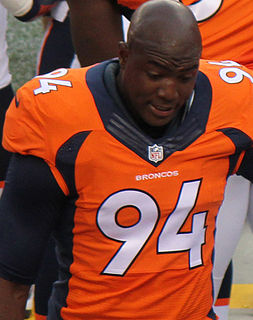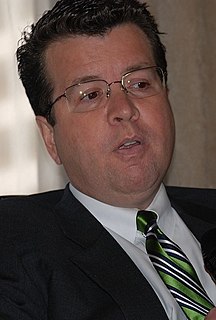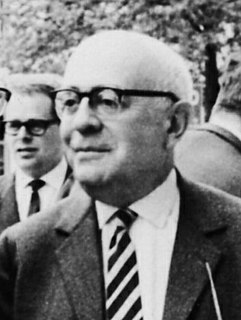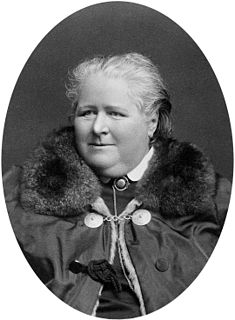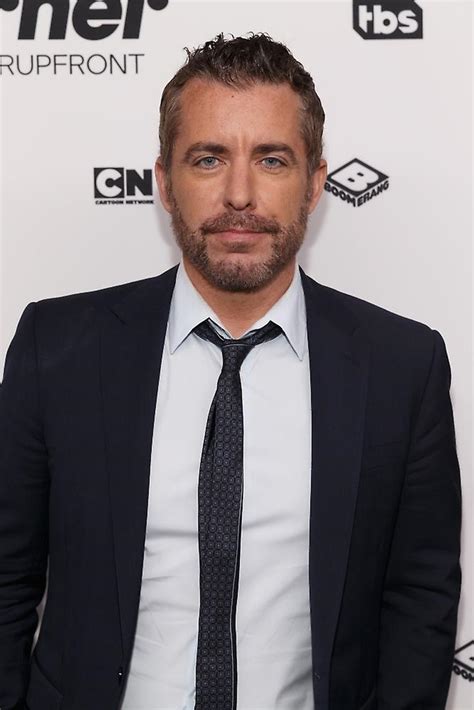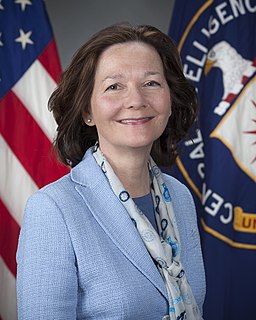Top 1200 Moral Responsibility Quotes & Sayings - Page 18
Explore popular Moral Responsibility quotes.
Last updated on April 21, 2025.
Reports to the Surgeon General represent the final word upon the efficient and devoted sense of responsibility of our people in this obligation to our fellow citizens. Overwhelmingly they confirm the fact that the general mortality rate, infant mortality rate, epidemics, the disease rate - are less than in normal times. There is but one explanation. That is, that through an aroused sense of public responsibility, those in destitution and their children are receiving actually more adequate care than even in normal times.
Moral questions may not have objective answers-whether revealed by God or by science-but they do have rational ones, answers rooted in a rationality that emerges out of social need. That rationality can only be discovered through exercising the human potential for rational dialogue, the potential for thinking about the world, and for discussing, debating and persuading others. Values can never be entirely wrenched apart from facts; but neither can they be collapsed into facts. It is the existence of humans as moral agents that allows us to act as the bridge between facts and values.
Art is not and never has been subordinate to moral values. Moral values are social values; aesthetic values are human values. Morality seeks to restrain the feelings; art seeks to define them by externalizing them, by giving them significant form. Morality has only one aim - the ideal good; art has quite another aim - the objective truth... art never changes.
There did not have to be a moral. She need only show separate minds, as alive as her own, struggling with the idea that other minds were equally alive. It wasn't only wickedness and scheming that made people unhappy, it was confusion and misunderstanding, above all, it was the failure to grasp the simple truth that other people are as real as you. And only in a story could you enter these different minds and show how they had an equal value. That was the only moral a story need have.
To be free people we must assume total responsibility for ourselves, but in doing so must possess the capacity to reject responsibility that is not truly ours. To be organized and efficient, to live wisely, we must daily delay gratification and keep an eye on the future; yet to live joyously we must also possess the capacity, when it is not destructive, to live in the present and act spontaneously. In other words, discipline itself must be disciplined. The type of discipline required to discipline discipline is what I call balancing.
Strength must build up, not destroy. It should outdo itself, not others who are weaker. Used without responsibility, it causes nothing but harm and death. I can lift the heaviest weights, but I can not take the responsibility off my shoulders. Because the way we use our strength defines our fate. What traces will I leave on my path into the future? Do we really have to kill in order to live? My true strength lies in not seeing weakness as weakness. My strength needs no victims. My strength is my compassion.
As a moral and social institution, a weekly rest is invaluable. It is a quiet domestic reunion for the bustling sons of toil. It ensures the necessary vacation in those earthly and turbulent anxieties and affections, which would otherwise become inordinate and morbid. It brings around a season of periodical neatness and decency, when the soil of weekly labour is laid aside, and men meet each other amidst the decencies of the sanctuary, and renew their social affections. But above all, a Sabbath (one day of rest in seven) is necessary for man's moral and religious interests.
The Shadow is a moral problem that challenges the whole ego-personality, for no one can become conscious of the shadow without considerable moral effort. To become conscious of it involves recognizing the dark aspects of the personality as present and real. This act is the essential condition for any kind of self-knowledge, and it therefore, as a rule, meets with considerable resistance. Indeed, self-knowledge as a psychotherapuetic measure frequently requires much painstaking work extending over a long period of time.
There is no author or legislator of the moral law. It is simply valid in itself in the nature or essence of things. We become autonomous only when we obey it, because then our will aligns itself with the objectively valid law, and our choice follows the same law as that we give ourselves. We can think of rational faculty (or the idea - the pure rational concept, not exhibitable in experience) as the legislator or author of the law because reason recognizes an objective standard, and to that extent is already aligned with objective moral truth.
Our example - and commitment - to freedom has changed the world. But along with the genius of our Declaration of Independence, our Constitution, and our Bill of Rights, is the equal genius of our economic system. Our Founding Fathers endeavored to create a moral and just society like no other in history, and out of that grew a moral and just economic system the likes of which the world had never seen. Our freedom, what it means to be an American, has been defined and sustained by the liberating power of the free enterprise system.
What really worries me is that those who are in positions of power are not really affected by what we are writing. In the moral dialogue you want to start, you really want to involve the leaders. People ask me: "Why were you so bold as to publish A Man of the People? How did you think the Government was going to take it? You didn't know there was going to be a coup?" I said rather flippantly that nobody was going to read it anyway, so I wasn't likely to be fired from my official position. It's a distressing thought that we cannot engage our leaders in the kind of moral debate we need.
When we ask we are owning our needs. Asking for love, comfort or understanding is a transaction between two people. You are saying: I have a need. It's not your problem. It's not your responsibility. You don't have to respond, but I'd like something from you.
This frees the other person to connect with you freely and without obligation. When we own that our needs are our responsibility we allow others to love us because we have something to offer. Asking is a far cry from demanding. When we demand love, we destroy it.
People assume that because I'm a celebrity and have this platform that I always know what I'm talking about. I guess I don't always know what I'm talking about because I'm a kid who's trying to figure it out amid all the chaos of the world at large, and also the chaos of having this voice and responsibility. At the same time, this voice and responsibility has been the biggest blessing because I'm able to create change just by posting something on Instagram. That's really amazing. I can't believe that I get to have that megaphone and I get to decide how to use it.
It's about food. It's about your home. It's about your life. The government is worried about all of the above. All I'm saying is you should be worried they're worried. Here's why: They're telling you that you can't take care of yourself. You can't be trusted with what you put in your mouth or what you sign on the mortgage dotted line. So they'll tell you what to put in your mouth and they'll save you from what you signed on that dotted line. Does anyone see a trend here? Personal responsibility has now become government responsibility.
In some socialist states well-performed work is rewarded with moral stimulants instead of material ones. However, the moral stimulants cannot be explained by materialistic philosophy. It is the same case with the appeals for humanism, justice, equality, freedom, human rights, and so forth, which are all of religious origin. Certainly, everybody has the right to live as he thinks best, including the right not to be consistent with his own pattern. Still, to understand the world correctly, it is important to know the true origin of meaning and of the ideas ruling the world.
This struggle may be a moral one, or it may be a physical one, and it may be both moral and physical, but it must be a struggle. Power concedes nothing without a demand. It never did and it never will. Find out just what any people will quietly submit to and you have found out the exact measure of injustice and wrong which will be imposed upon them, and these will continue till they are resisted with either words or blows, or with both. The limits of tyrants are prescribed by the endurance of those whom they oppress.
The American people are not ready for the idea that everyone has at least a moral right to good, timely health care. They do agree they have a moral right, in critical cases, to have anything done to save their life, but they don't believe that anyone has a right not to fall that sick to begin with. So if you ask me, "Are we ever succumbing to some notions of solidarity as a nation?," I would say, "Not at all." I would describe us as a group of people who share a geography. That's a better description of Americans than that we're a real nation with a sense of solidarity.
To speak of ‘limits to growth’ under a capitalistic market economy is as meaningless as to speak of limits of warfare under a warrior society. The moral pieties, that are voiced today by many well-meaning environmentalists, are as naive as the moral pieties of multinationals are manipulative. Capitalism can no more be ‘persuaded’ to limit growth than a human being can be ‘persuaded’ to stop breathing. Attempts to ‘green’ capitalism, to make it ‘ecological’, are doomed by the very nature of the system as a system of endless growth.
...God has made provision for our holiness. Through Christ He has delivered us from sin's reign so that we now can resist sin. But the responsibility for resisting is ours. God does not do that for us. To confuse the potential for resisting (which God provided) with the responsibility for resisting (which is ours) is to court disaster in our pursuit of holiness.
So long as the mental and moral instruction of man is left solely in the hands of hired servants of the public--let them be teachers of religion, professors of colleges, authors of books, or editors of journals or periodical publications, dependent upon their literary incomes for their daily bread, so long shall we hear but half the truth; and well if we hear so much. Our teachers, political, scientific, moral, or religious; our writers, grave or gay, are compelled to administer to our prejudices and to perpetuate our ignorance.
[Lighting a cigarette] Well, I'm not here to impinge on anybody else's lifestyle. If I'm in a place where I know I'm going to harm somebody's health or somebody asks me to please not smoke, I just go outside and smoke. But I do resent the way the nonsmoking mentality has been imposed on the smoking minority. Because, first of all, in a democracy, minorities do have rights. And, second, the whole pitch about smoking has gone from being a health issue to a moral issue, and when they reduce something to a moral issue, it has no place in any kind of legislation, as far as I'm concerned.
We need strong Christians who can persevere against hardship, who can sustain hope through tragedy, who can lift others by their example and their compassion, and who can consistently overcome temptations. We need strong Christians who can make important things happen by their faith and who can defend the truth of Jesus Christ against moral relativism and militant atheism. What is the source of such moral and spiritual power, and how do we obtain it? The source is God. Our access to that power is through our covenants with Him.
I join cordially in admiring and revering the Constitution of the United States, the result of the collected wisdom of our country. That wisdom has committed to us the important task of proving by example that a government, if organized in all its parts on the Representative principle unadulterated by the infusion of spurious elements, if founded, not in the fears & follies of man, but on his reason, on his sense of right, on the predominance of the social over his dissocial passions, may be so free as to restrain him in no moral right, and so firm as to protect him from every moral wrong.
Nothing can better express the feelings of the scientist towards the great unity of the laws of nature than in Immanuel Kant's words: "Two things fill the mind with ever new and increasing awe: the stars above me and the moral law within me."... Would he, who did not yet know of the evolution of the world of organisms, be shocked that we consider the moral law within us not as something given, a priori, but as something which has arisen by natural evolution, just like the laws of the heavens?
Blind obedience is itself an abuse of human morality. It is a misuse of the human soul in the name of religious commitment. It is a sin against individual conscience. It makes moral children of the adults from whom moral agency is required. It makes a vow, which is meant to require religious figures to listen always to the law of God, beholden first to the laws of very human organizations in the person of very human authorities. It is a law that isn't even working in the military and can never substitute for personal morality.
Taking responsibility nurtures self-confidence, and self-confidence can help you to be a more interesting and attractive person. And best of all, the more you believe in yourself, the more power you possess to attract your good. . . . Those who speak constantly of their right to freedom must understand that an irresponsible act does not bring greater freedom but only greater bondage to the action. One law of life says, "If we are to enjoy freedom, we must accept responsibility." A great awareness is expressed in this statement.
So immense are the claims on a mother, physical claims on her bodily and brain vigor, and moral claims on her heart and thoughts, that she cannot ... meet them all and find any large margin beyond for other cares and work. She serves the community in the very best and highest way it is possible to do, by giving birth to healthy children, whose physical strength has not been defrauded, and to whose moral and mental nature she can give the whole of her thoughts.
Monopolistic capitalism is to blame for this; it sunders the right to own property from responsibility that owning property involves. Those who own only a few stocks have no practical control of any industry. They vote by postcard proxy, but they have rarely even seen "their" company. The two elements which ought to be inextricably joined in any true conception of private property - ownership and responsibility - are separated. Those who own do not manage; those who manage; those who manage and work do not control or own.
No president ever puts American lives at risk without a terrible sense of responsibility. And no American ever hears or reads of a soldier’s death without saying a silent prayer for the dead hero or thinking of the grief of the family and friends. Every young man or woman who dies represents a life with its own dreams and plans, extinguished so suddenly. But all said and done, it is our responsibility to see that (1) we never put our troops in situations where they are subject to unnecessary risk, and (2) we give them all our support at all times.
A crucial turning point in that earlier history occurred when men and women of good will turned aside from the task of shoring up the Roman imperium and ceased to identify the continuation of civility and moral community with the maintenance of that imperium. What they set themselves out to achieve instead - often not recognizing fully what they were doing - was the construction of new forms of community within which the moral life could be sustained so that both morality and civility might survive the coming age of barbarism and darkness.
The Christian faith, simply stated, reminds us that our fundamental problem is not moral; rather, our fundamental problem is spiritual. It is not just that we are immoral, but that a moral life alone cannot bridge what separates us from God. Herein lies the cardinal difference between the moralizing religions and Jesus' offer to us. Jesus does not offer to make bad people good but to make dead people alive.
You do just have to go back to moral philosophy and you've got to say, okay, there is greed, people do want more and more, but then what restrains them and what restrained them in the past was a view of life in which one's satisfaction wasn't the most important thing, that you just, you needed enough and you could say, "Enough is enough." Maybe religion will get you there, maybe just classic moral philosophy, but you have to have some of that, or else you're always on the gravy train.
In academic life, false ideas are merely false and useless ones can be fun to play with. In political life, false ideas can ruin the lives of millions and useless ones can waste precious resources. An intellectual's responsibility for his ideas is to follow their consequences wherever they may lead. A politician's responsibility is to master those consequences and prevent them from doing harm. Michael Ignatieff, a former professor at Harvard and contributing writer for the magazine, is a member of Canada's Parliament and deputy leader of the Liberal Party.
There's definitely a sense of responsibility and it's something I take very seriously. It's an honor. There's pressure, but that's a good thing and something I feel very fortunate to have. I take great responsibility for it. Not every number gives you pressure. This number, the No. 3, means so much. It pushes me to be better, to go to the gym, to talk to my crew chief Gil Martin, and to be with the guys on the team every day. The number pushes me and that's a good thing.
So often times we see these films that erode human dignity...films that deny the transcendent moral order of the moral universe. They're always eroding natural affections for families. Fathers betray their commitments, children's are always portrayed as brats and disobedient, marriages are always in crisis and struggle. I think (for) most of us, that's not the lives we live. We're always being challenged, we always have challenges but we love our families, we love our spouse, we love our children.
A shared choice movement sees the fetus as the genes of a woman and the genes of a man; the flesh of the woman, the flesh of the man; the bone of a woman, the bone of a man; the responsibility of a woman, the responsibility of a man; the rights of a woman, the rights of a man. It desires a transition to equality.
If animals are no longer quite outside the moral sphere, they are still in a special section near the outer rim. Their interests are allowed to count only when they do not clash with human interests. If there is a clash - even a clash between a lifetime of suffering for a nonhuman animal and the gastronomic preference of a human being - the interests of the nonhuman are disregarded. The moral attitudes of the past are too deeply embedded in our thought and our practices to be upset by a mere change in our knowledge of ourselves and of other animals.
If there is no absolute moral standard, then one cannot say in a final sense that anything is right or wrong. By absolute we mean that which always applies, that which provides a final or ultimate standard. There must be an absolute if there are to be morals, and there must be an absolute if there are to be real values. If there is no absolute beyond man's ideas, then there is no final appeal to judge between individuals and groups whose moral judgments conflict. We are merely left with conflicting opinions.
You really have so little choice - so little to decide. You get put through the machine and it chops you up and spits you out. Your life, it's all mechanical, of the machine, until you have free will. You can't be accepted into the Work until you have matured -- freed yourself and take responsibility for your life, become accountable for your every action. It's not just from coming to a school. It's an active process - you have to take the responsibility for yourself. When you're trapped in the machine, it doesn't matter what you do.
Even in the era of AIDS, sex raises no unique moral issues at all. Decisions about sex may involve considerations about honesty, concern for others, prudence, and so on, but there is nothing special about sex in this respect, for the same could be said of decisions about driving a car. (In fact, the moral issues raised by driving a car, both from an environmental and from a safety point of view, are much more serious than those raised by sex.)
So far as I am concerned, poetry and every other art was and is and forever will be strictly and distinctly a question of individuality... If poetry is your goal, you've got to forget all about punishments and all about rewards and all about self-styled obligations and duties and responsibilities etcetera ad infinitum and remember one thing only: that it's you - nobody else - who determine your destiny and decide your fate. Nobody else can be alive for you; nor can you be alive for anybody else... There's the artist's responsibility; and the most awful responsibility on earth.

